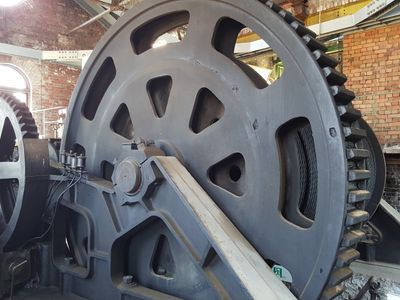The course considers science and technology in a global historical perspective. It explores how science and technology have been used to make sense of the world, and to control it. The course provides a foundation for further studies in the history of science, technology, and the environment, but also allows students specializing in engineering and the natural sciences to gain a deeper understanding of the historical dimensions of their fields, and a broader perspective on how and why science and technology have become such powerful elements in the modern world.
AK1202 History of Science and Technology 7.5 credits

Questions about admittance and similar, please contact: kursexp@abe.kth.se
Questions about content, please contact: perho@kth.se
This course explores how science and technology have been used to make sense of the world, and to control it. It considers science and technology in a global historical perspective. The course provides a foundation for further studies in the history of science, technology, and the environment, but also allows students specializing in engineering and the natural sciences to gain a deeper understanding of the historical dimensions of their fields, and a broader perspective on how and why science and technology have become such powerful elements in the modern world.
The course centres around some principle ideas of science and techoology, such as progress, innovation, revolution and development, modernity, civilisation and risk and will discuss how these notions have been culturally constructed through time. The course does not give a chronological overview of the development of science and technology through all times. Instead we will touch upon many interesting topics such as colonialism, green revolution, eugenics, medieval islamic science, Cold War, nuclear energy, domestic technologies or technological selection and see how the abovementioned core concepts have played out. If you are curious whether Pythagoras actually invented the Pythagoras theoreme, what have Nazis to do with lung cancer, when did chicken start to consist of only legs, or how is research into nuclear bombs related to the development of global climate science, then this course is for you.
Information per course offering
Choose semester and course offering to see current information and more about the course, such as course syllabus, study period, and application information.
Course syllabus as PDF
Please note: all information from the Course syllabus is available on this page in an accessible format.
Course syllabus AK1202 (Spring 2022–)Content and learning outcomes
Course contents
Intended learning outcomes
By the end of the course, you will be able to:
- Identify major changes in science and technology over time;
- Identify sources and methods used in historical writing and critically assess the validity of arguments in the history of science and technology;
- Describe how central ideas in science and technology, such as discovery, innovation, modernity, risk, etc., have been historically and socially constructed;
- Explain how understanding the historical dimensions of issues with contemporary significance can inform responsible actions in the present.
Literature and preparations
Specific prerequisites
Cmpleted upper secondary education.
Recommended prerequisites
None
Literature
Examination and completion
Grading scale
Examination
- INL1 - Assignment Work, 7.5 credits, grading scale: A, B, C, D, E, FX, F
Based on recommendation from KTH’s coordinator for disabilities, the examiner will decide how to adapt an examination for students with documented disability.
The examiner may apply another examination format when re-examining individual students.
If the course is discontinued, students may request to be examined during the following two academic years.
Other requirements for final grade
- Active participation in course activities.
- Approved assignments.
Examiner
Ethical approach
- All members of a group are responsible for the group's work.
- In any assessment, every student shall honestly disclose any help received and sources used.
- In an oral assessment, every student shall be able to present and answer questions about the entire assignment and solution.
Further information
Course room in Canvas
Offered by
Main field of study
Education cycle
Supplementary information
The course might be cancelled if less than 5 students want to enrol.
Former course code: 4D1205